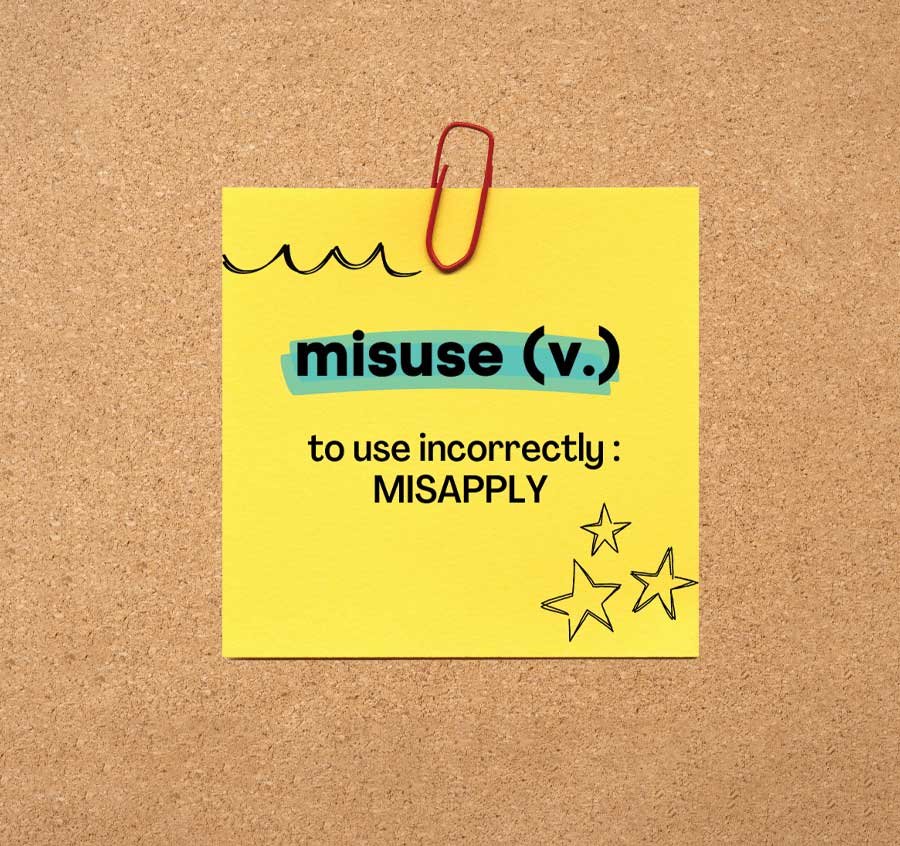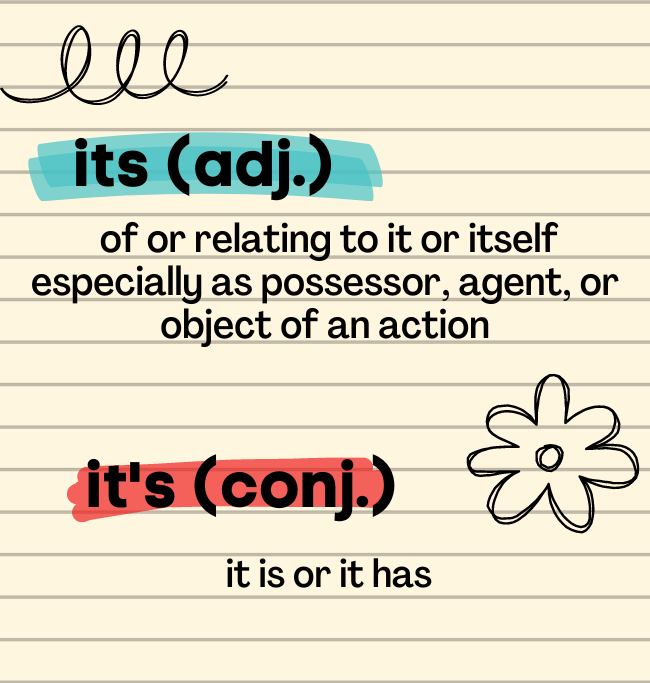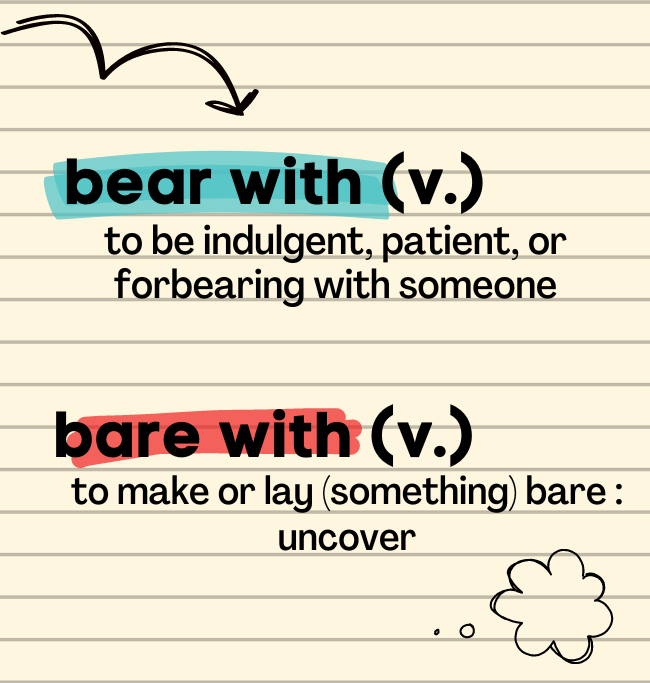How to avoid these commonly misused English words

I commonly misuse a lot of English words when I write or talk to people. Sometimes I can reroute what I’m saying but sometimes the mistake only occurs to me when I’m done writing or talking.
Saying something wrong during conversation or in writing isn’t out of the norm. Often, we stumble around English because we speak different languages at home, at work, online, and in person. Adding the different levels of formality in both our native tongue and English, it’s not surprising that it is difficult to master both languages at once.
Check out these commonly misused English words to see when and how you should use them.
it’s and its

Let’s start with a classic misused English word. That tiny apostrophe between the letters t and s is the bane of my existence. If I didn’t have Grammarly in my Chrome extension, I would probably make this mistake all the time. You use its for possession: its logo, its birthday, its place, etc. You use it’s when you’re shortening the phrase it is or it has: it’s so quiet here, it’s going to be a great day, it’s an easy thing to remember, etc.
bear with and bare with

I’ve read people misuse this English phrases frequently enough that it helped me check if I’m using them right. I blame its misuse on the fact that it’s an unfortunate homonym. Perhaps you have seen it too.
Let’s say you’re the host of a webinar event, and your team is experiencing internet problems. Please bare with us sounds the same, but when written, it means you’re asking your audience to either take off their clothes with you or share their feelings with you. Obviously, this is not what you want them to do: you want them to wait patiently.
A neat trick you can use is if you need people to wait, they need to wait patiently like a bear. After all, patience is the bare minimum of internet etiquette.
in, on, and at

I get prepositions wrong daily, and that’s because they’re really confusing. Grammar in English is quite annoying because it’s more temperamental than our tropical weather. There are only specific instances you can use a particular preposition. Such is the case with the preposition of time.
Let’s talk lunch. Use “in” when you are referring to unspecific parts of the day. We eat lunch in the afternoon. Use “at” when you are talking about a specific time. We eat lunch at 12’oclock. Use “on” when you are referring to days. Let’s eat lunch on Saturday. Sounds simple, right? But every time I have to use them in a sentence, I still double-take which preposition I should use.





